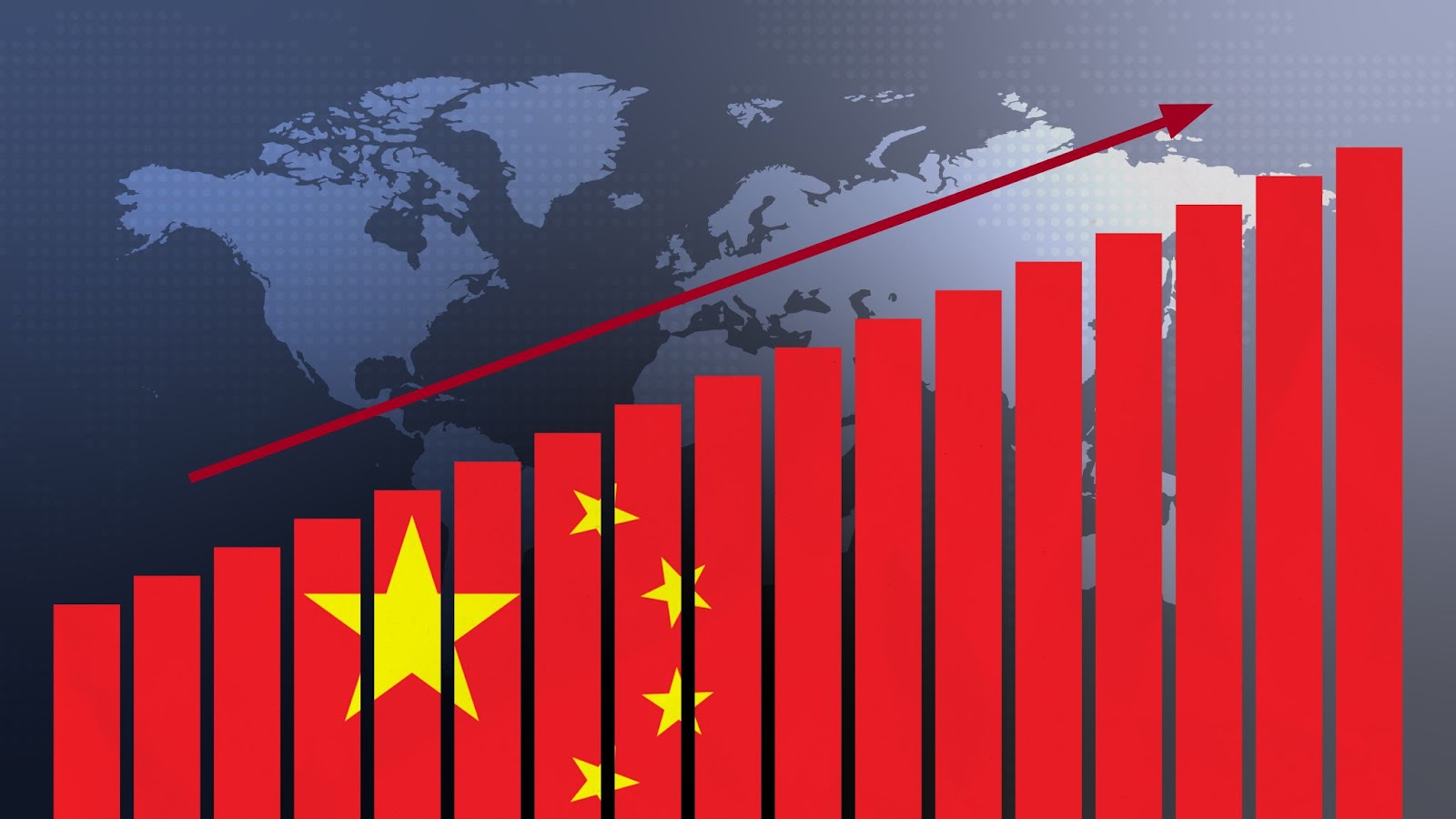Goldman Raises China Outlook as Tariff Truce Lifts Market Sentiment
16.05.2025 16:00 2 min. read Alexander Stefanov
Global markets are recalibrating expectations for China’s economic performance following a sudden softening of trade tensions with the U.S.
In response to the newly announced tariff suspension, Goldman Sachs has raised its 2025 GDP forecast for China from 4% to 4.6%, signaling renewed confidence in short-term recovery momentum.
The 90-day deal reduces import duties on both sides, offering a window of relief amid years of economic friction. While not a definitive solution, the development has already made waves. Financial firms like UBS and Natixis quickly followed suit, raising their own projections for China’s growth. Morgan Stanley now expects second-quarter GDP to top 4.5%, with sustained strength into the next quarter.
Chinese equities reacted swiftly, with Nomura upgrading its view on mainland stocks and Citi boosting its target for the Hang Seng Index. Tech and consumer sectors are seen as the biggest winners in the near term.
Still, economists remain cautious. The agreement’s temporary nature and unresolved structural problems—ranging from property market weakness to mounting local government debt—pose risks to a full-scale recovery. Some analysts warn the current optimism may fade if lasting policy changes don’t follow.
Though the tariff pause offers short-term fuel, the long-term outlook for China hinges on deeper reforms and durable trade frameworks. For now, the market is watching whether this truce evolves into something more substantial—or simply resets the countdown clock.
-
1
U.S. PCE Inflation Rises for First Time Since February, Fed Rate Cut Likely Delayed
27.06.2025 18:00 1 min. read -
2
Key U.S. Economic Events to Watch Next Week
06.07.2025 19:00 2 min. read -
3
Gold Beats U.S. Stock Market Over 25 Years, Even With Dividends Included
13.07.2025 15:00 1 min. read -
4
U.S. Announces Sweeping New Tariffs on 30+ Countries
12.07.2025 16:30 2 min. read -
5
US Inflation Heats Up in June, Fueling Uncertainty Around Fed Cuts
15.07.2025 16:15 2 min. read
US Inflation Heats Up in June, Fueling Uncertainty Around Fed Cuts
U.S. inflation accelerated in June, dealing a potential setback to expectations of imminent Federal Reserve rate cuts.
Gold Beats U.S. Stock Market Over 25 Years, Even With Dividends Included
In a surprising long-term performance shift, gold has officially outpaced the U.S. stock market over the past 25 years—dividends included.
U.S. Announces Sweeping New Tariffs on 30+ Countries
The United States has rolled out a broad set of new import tariffs this week, targeting over 30 countries and economic blocs in a sharp escalation of its trade protection measures, according to list from WatcherGuru.
Key U.S. Economic Events to Watch Next Week
After a week of record-setting gains in U.S. markets, investors are shifting focus to a quieter yet crucial stretch of macroeconomic developments.
-
1
U.S. PCE Inflation Rises for First Time Since February, Fed Rate Cut Likely Delayed
27.06.2025 18:00 1 min. read -
2
Key U.S. Economic Events to Watch Next Week
06.07.2025 19:00 2 min. read -
3
Gold Beats U.S. Stock Market Over 25 Years, Even With Dividends Included
13.07.2025 15:00 1 min. read -
4
U.S. Announces Sweeping New Tariffs on 30+ Countries
12.07.2025 16:30 2 min. read -
5
US Inflation Heats Up in June, Fueling Uncertainty Around Fed Cuts
15.07.2025 16:15 2 min. read


